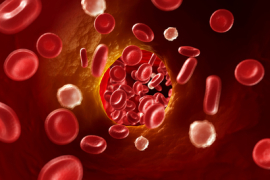People who receive treatment for periodontal disease may be setting themselves up for a lower risk of cancer down the road, according to a study published in QJM: An International Journal of Medicine.
The study, which evaluated over 110,000 Taiwanese patients, sought to “evaluate the relationship between routine treatment of periodontal disease and the subsequent risks for cancers.” They found that routine periodontal disease treatment was associated with a lower risk for cancers in the gastrointestinal tract, female reproductive system, lung, and brain.
“Our findings suggest that PD with treatment is associated with a significantly reduced overall risk of cancer and reduced risks of certain types of cancers.”
It’s important to note that researchers evaluated routine periodontal disease treatment to get these results. It is likely that the results would have been even more significant had the researchers both identified and treated the treatment group according to genetic and microbial parameters in addition to the traditional, visual, approach.
We are finding that oral pathogens play a significant role in many systemic diseases, including heart disease, rheumatoid arthritis, and Alzheimer’s disease. Last year, Dr. Garth Ehrlich, director of the Center for Genomic Science, spoke out about how the scientific community has changed its view on disease:
“I think the biggest paradigm shift is that many of the conditions that we used to think of as chronic inflammatory conditions are actually chronic bacterial infections. The belief developed in the medical and dental communities that these conditions—which couldn’t be treated with antibiotics and where they couldn’t detect bacteria—must have been inflammatory conditions as opposed to infections conditions. We’ve been showing over the past quarter of a century…that these inflammatory conditions are actually chronic infectious conditions caused by bacterial biofilms.”
Watch the full interview with Dr. Ehrlich here.
Source: Periodontal disease with treatment reduces subsequent cancer risks.



